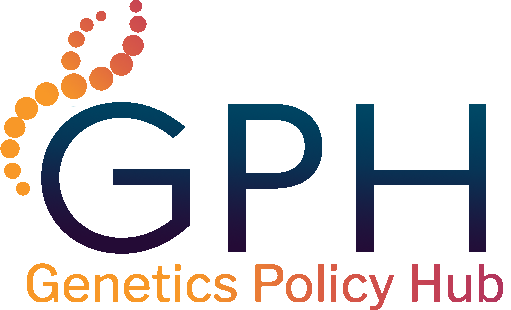From 2004 to 2024, the Health Resources and Services Administration (HRSA) funded the National Coordinating Center for the Regional Genetics Networks (NCC). NCC developed and maintained the Genetics Policy Hub.
With the conclusion of NCC funding, the Genetics Policy Hub (GPH) will no longer be updated or maintained. Information on GPH should be used for historical reference only.
Genetic Privacy
Updated On Sep 19, 2024
This information is meant to be used for educational purposes to inform providers, patients, and genetic service delivery stakeholders about genetics policy topics. Sharing of information, resources, or policy statements is no way an endorsement of stated positions by NCC.
Introduction
Genetic privacy is the protection of genetic information from unauthorized disclosure to third parties, such as family members, employers, insurers, law enforcement, and the government. Genetic information can include DNA test results, biochemical tests, and diagnoses made from physical examination or family histories.
On a federal level, there are two main statues that protect genetic privacy: the Health Insurance Portability and Accountability Act (HIPAA) and the Genetic Information Nondiscrimination Act (GINA). While these two acts will be summarized below, more information can be found on HIPPA on the U.S. Department of Health and Human Services (HHS) website; and about GINA on the National Human Genome Research Institute (NHGRI) website.
HIPAA regulates disclosures of medical information in healthcare settings. HIPAA regulates how and when health providers can disclose your medical information. For example, if you have genetic testing and your daughter calls to get the results, HIPAA prevents this disclosure without your authorization. Likewise, if you are applying for life insurance and a life insurance company calls your doctor to get your medical records, HIPAA prevents this disclosure without your authorization. However, HIPAA does allow for some disclosures without the patient’s authorization. For example, it allows the disclosure of information for the purpose of treatment, payment, or healthcare operations. Thus, if you are in a car accident and the emergency room calls your provider to find out what medications you are taking, this disclosure is allowed as it is for the purpose of treatment. Likewise, when your provider bills your insurance company, the insurance company can request records to determine payment.
GINA is intended to prevent discrimination based on genetic information by health insurers and employers. Before GINA, it was legal for a health insurance company to charge a person more for health insurance, or to deny them health insurance, based on their genetic information. For example, a person who was perfectly healthy, but had a higher chance of developing cancer could be denied health insurance. After GINA was implemented, individuals were protected from discrimination based on genetic information by health insurers and employers.
HIPAA and GINA do not apply in all situations. For example, neither apply to life, disability, or long-term care insurance companies. It is legal for a life insurance company to ask if an applicant has had genetic testing, then make coverage decisions based on that answer, or even require testing prior to coverage. GINA does not apply to companies with few employees, US military members who get care through Tricare, veterans who get care at the VA or through the Indian Health Service, or federal employees enrolled in the Federal Employee Health Benefits Plan.
As scientists started researching human genetics, it became apparent that people also needed genetic privacy protections in medical research. Thus, regulations have been written to protect research subject’s genetic information. For more information on genetic privacy in research, please visit the NHGRI’s website.
Legislation and Regulation
The HIPAA Privacy Rule established national standards to protect individuals’ medical records and other personal health information and applies to health plans, health care clearinghouses, and those health care providers that conduct certain health care transactions electronically. More information on HIPPA can be found on the HHS website.
Although more focused on genetic discrimination than genetic privacy, the federal government attempted to address concerns through the passage of the Genetic Information Nondiscrimination Act of 2008 (GINA). More information on this act can be found on the National Human Genome Research Institute (NHGRI) website which provides an overview of GINA and describes what protections GINA does and does not offer. Additional protections can be found in other legislation, such as the Affordable Care Act and the Americans with Disabilities Act. A summary of those protections can be found elsewhere on the NHGRI website.
Are you interested in learning what your state’s government or the federal government are currently proposing for either legislation or regulation? Check out Legislative/Tracking system for up-to-date information and subscribe to our Twitter channel to get the latest updates in your pocket.
Policy Positions
Organizations working within the genetics community (national genetic organizations, advocacy organizations, etc.) have published positions on genetic privacy. Explore these position statements below.

